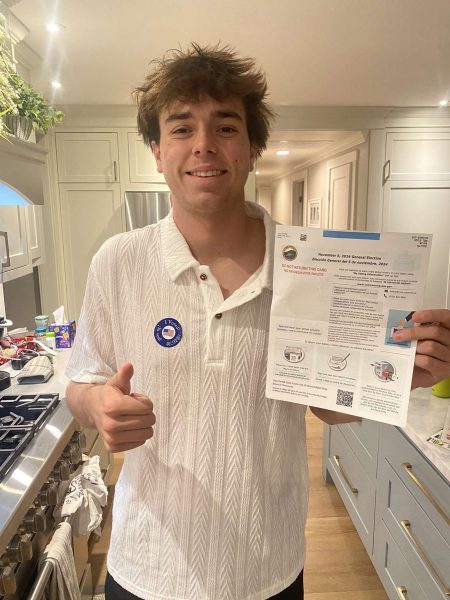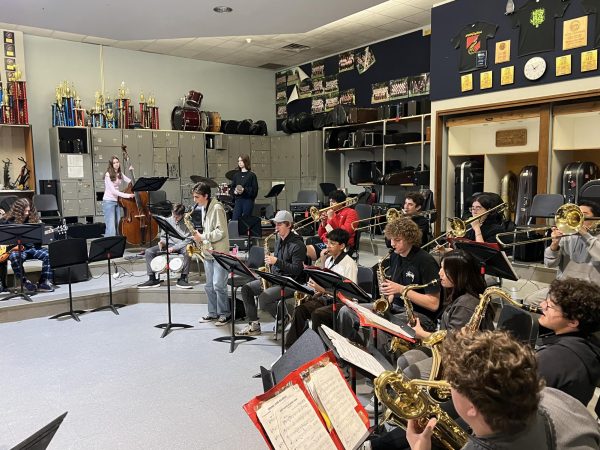Support counselors offer student stress management strategies
As when school is in session, daily support is available – now on Zoom – for students who need to talk
Photo by Fabian Møller on Unsplash
Northgate support counselor Jon Parker describes mindfulness as “paying attention to the present moment on purpose without judgement.”
This year has collectively been difficult for people around the world, and Northgate High School students are no exception. The COVID-19 pandemic, resulting in quarantine social distance rules that have cancelled events large and small, has sent an upheaval in learning and activities. Between the annual college application process for the upper class students, transition into a high paced learning environment for freshmen, and the constant addition to the list of grievances in our world, it can be difficult to maintain a positive outlook and keep stress levels down.
Sophomore Ashlynn Evans said recently she has experienced the travails of being a high school student during this pandemic first hand.
“I have been stressed because distance learning has impacted the amount of homework we get,” Evans said. She voiced her concerns about not being able to complete assignments in time, and emphasized that students “have other priorities like our mental health and sports to worry about, too.”
Tanya Buhler, also a sophomore, said she has been feeling worried by the events that are being recorded in the media. “When I read the news… it stresses me out because I don’t think we should be ruled by someone who treats people differently for who they are,” Buhler explained, referring to the Nov. 3 presidential election. She reiterated that “it is not [okay] what is happening to the world.”
Buhler also described the difficulty of staying positive with the news regarding coronavirus. “So many people have been dying from it and it is scary,” she said. “It is stressful to see people not care about it.”
One of Northgate’s two student support counselors, Jon Parker, was able to shed light on how news can affect us, in addition to providing simple ways for people to ease stress and stay mindful.
Parker explained the events going on in the world can “lead to feelings of sadness and hopelessness.” Despite provoking negative emotions at times, he believes “it’s important to know what’s going on with the world.”
That leads to the inevitable conflict of how people can continue to stay up to date on important news, but still limit the dreaded feelings associated with it. “You can pick a specific time and amount of time to learn about what’s happening,” Parker suggested.
Even then, it can be difficult to maintain cheerfulness, he added. “It’s important to focus on gratitude, and sometimes it’s hard, but there are things… that should not be taken for granted,” Parker said.
Parker offered insight on keeping stress levels low in a school setting. Balancing time spent working and time relaxing is critical.
“There’s always [going to] be more school to do,” he said, but “play is very important too.” Leaning towards his earlier recommendation of setting time limits, he proposed “making a daily schedule and writing something for each hour of the day.” At first glance, it may seem like an extremely simple change to make. However, it can be very beneficial in that it allows for ease in planning free time. Parker stresses to “allow yourself to say ‘I’m not supposed to be doing anything else’” and to enjoy the breaks given.
Another important, yet difficult, thing to gauge is knowing when is an appropriate time to take a break from schoolwork. However, there are some signs that can indicate a need to pause.
“If you are no longer able to pay attention” and “if you’re getting a headache” or have been sitting for too long, Parker said it may be time to set school aside for a bit. He stressed that people should only be sitting for a certain amount of time, and once that time period is up they need to move around. He compared this idea to drinking water despite not being thirsty.
An efficient way to calm down is through mindfulness. Parker describes it as “paying attention to the present moment on purpose without judgement.” Although it may sound intimidating, it is quite simple to practice and can be tailored to each individual. The goal of mindfulness is to “counteract the massive amount of [information] that we all receive constantly” and maintain our emotions, he explained.
Parker explained that “mindfulness has to fit in your life in a natural way.” Mindfulness can be as simple as going on a walk or be more structured, using an app such as Headspace or Calm, so long as the action allows one to focus on one of the five senses. He added that for those who may not be able to sit still for a long period of time, “they might practice mindful walking or mindful eating.”
The great thing about mindfulness is that people may be practicing it without even knowing. “Every time you notice and bring your attention back to here, it’s mindfulness,” but Parker also mentioned that it is okay to allow one’s mind to wander. He said there is no right or wrong to mindfulness, and stressed “it’s not helpful to try too hard and it’s not helpful to judge yourself and say you’re doing it wrong.” Despite being easy to fit in one’s life, mindfulness may be daunting to some for fear it needs to be practiced consistently. Parker said it is not necessary to practice it every day, but it certainly would be beneficial to do so. He compared doing mindfulness to taking vitamins. If one were to miss a day, it would be fine, but keeping track and regularly taking them would be ideal.
Mindfulness is flexible and incredibly helpful in staying in a positive state of mind, but it may not be the right choice for everyone. Fortunately, there are other options that can help people relax. One of these options is something called progressive muscle relaxation. This exercise is also simple and effective. According to Parker, to practice this exercise, one should lay down and close their eyes, tensing up all of their muscles. Starting from the top of the head, he said to release each set of muscles slowly.
Although many of the ideas for staying positive and relaxed that Parker mentions can be helpful, it is no replacement for a visit with one of Northgate’s two support counselors. Parker recommended making an appointment over zoom with him or with Northgate’s other student support counselor, Shannon Brueckner, if a student is “noticing a change in your mood, especially a dramatic change.”
No reason is too minor to reach out, he said. “If things that used to make you happy don’t make you happy anymore [or] if you are having trouble with sleeping or eating too much or too little, [or] if there are conflicts in your life that are difficult to deal with,” he thinks one should contact either of the school’s counselors.
To contact Northgate’s therapists, please go to the school’s website and click on the “contact support staff” button. Shannon Brueckner and Jon Parker’s contact information can be found there. After sending an email, a zoom call will be set up. Parker states that the conversations remain confidential, except in situations where a counselor deems a student’s safety at risk, including self-harm.
This year has tested the world’s strength and perseverance. No one is alone in this battle, and it is critical to remember that the events occurring around the world are not easy to undergo. However, Parker brilliantly stated “it’s important for everybody to be patient with themselves and try not to be critical or judgy because it is a difficult time… we’re all doing the best that we can.” Maintaining positivity and focusing on one’s well being is important and should not be lost and forgotten in the midst of the crises the world is experiencing.










